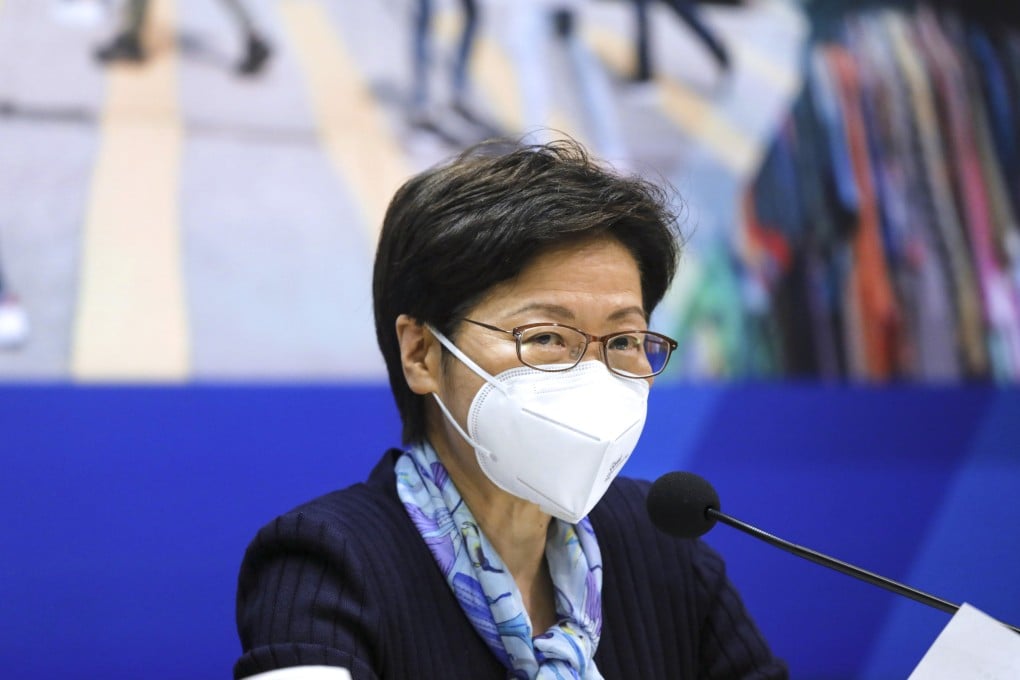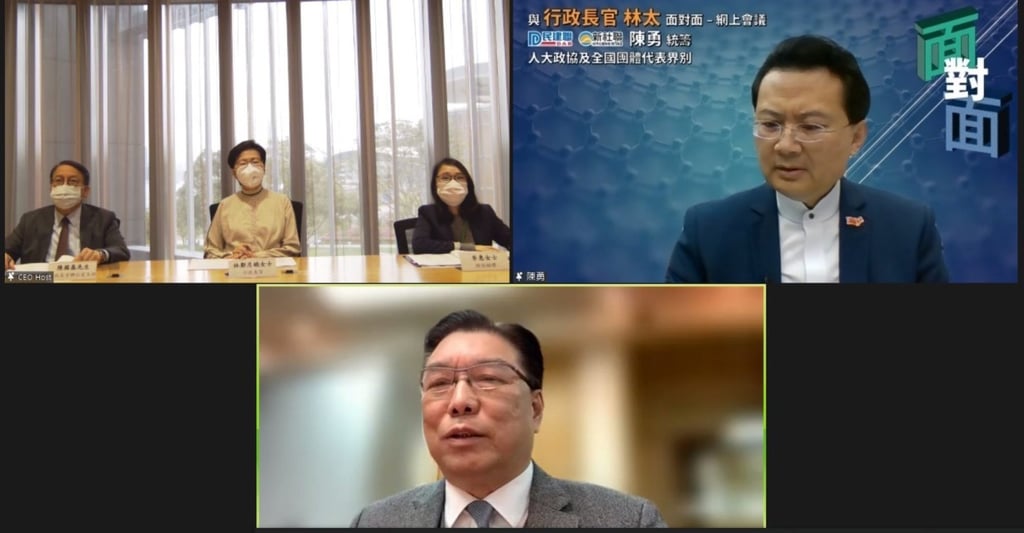Coronavirus: Hong Kong leader asks for help to persuade Beijing to resume quarantine-free cross-border travel after outbreak subsides
- Carrie Lam says in virtual meeting with pro-Beijing politicians that Hong Kong is caught ‘in a dilemma’ between meeting zero-Covid expectations and business interests
- Lam calls for national lawmakers, political advisers to promote communication with mainland authorities and central government to boost chances of border reopening

Hong Kong’s leader has asked pro-Beijing politicians in a rare virtual meeting to help persuade mainland Chinese officials to resume quarantine-free cross-border travel after the city’s current coronavirus outbreak subsides, the Post has learned.
Chief Executive Carrie Lam Cheng Yuet-ngor conceded on Monday that Hong Kong was caught “in a dilemma” between meeting Beijing’s expectations and catering to the interests of foreign investors as it struggled to contain the recent fifth wave of infections.
“According to Lam, it is difficult for Hong Kong to meet both sides’ requirements – achieving the mainland’s goal of dynamic zero-Covid while taking care of the interests of foreign businesses. She said Hong Kong was in a dilemma and solutions were needed,” a source said.

The video conference, initiated by the pro-establishment bloc, was attended by some 60 politicians and businessmen, including Hong Kong deputies to China’s parliament, the National People’s Congress (NPC), and the nation’s top advisory body, the Chinese People’s Political Consultative Conference.
Leaders of several prominent mainland organisations also took part.
Some attendees described the atmosphere of the 90-minute conversation as “direct, yet non-confrontational”. Most of the 15 who were given the opportunity to speak raised practical questions about her administration’s policy direction as daily infection numbers continued to fall, but did not grill her on the mishandling of the outbreak or ask if she would seek a second term as city leader.
According to a politician who attended the meeting, Lam said her administration was well aware of the concerns of local and international businesses about the city’s chances of reopening its border with the mainland, and mounting calls from overseas to further ease travel restrictions.